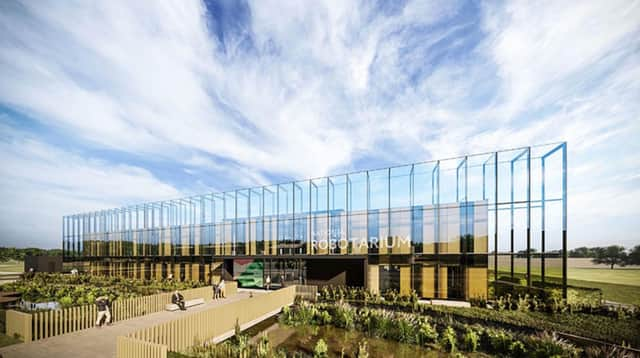Heriot-Watt on the key role for universities in the Covid recovery


Heriot-Watt University has laid out a detailed vision in its Economic Recovery prospectus, with a promise to “re-imagine the future” by fusing research, skills, industry, leadership and enterprise.
Dr Gillian Murray, Deputy Principal (Enterprise and Business), explains: “Innovation has always been in Heriot-Watt’s DNA, and it’s all about the practical application of that to help deliver transformational change, to reimagine that future.
“We provide the leadership and the research base to help identify and solve big challenges and we create a pipeline of talent, which is the engine of growth.
“Universities are often talked about in terms of research and skills, but it’s not just that; it’s also about commercialisation and internationalisation and pulling it all together. The whole is greater than the sum of the parts.”
Dr Murray says this collaborative approach is crucial to turbo-charging the economic sectors of the future. Robotics and artificial intelligence (AI), net zero and decarbonisation, and healthcare technology are all areas of particularly strong focus for Heriot-Watt.
She explains: “The Recovery Prospectus takes key sectors - including robotics and AI - and shows how they can help connect everything up.
“Robotics and AI, for example, is not just a sector in itself. It feeds into healthcare technology and supports solutions as we move towards a green economy and net zero. Many other sectors, including energy, will be enabled by robotics and AI.”
A key focus of Heriot-Watt’s robotics research is how robots interact with humans. “One of our living labs is focused on Assisted Living, and examines how robotics and AI can support that and keep people in their homes for longer,” says Dr Murray. “How robots interact with humans is a really interesting research challenge and key to the future in healthcare.”
At the heart of the robotics future is the National Robotarium, taking shape at the Heriot-Watt campus, a £22.4 million partnership between Heriot-Watt and the University of Edinburgh. It is just one example of collaboration and partnership, which Dr Murray says is fundamental to recovery.
“Covid-19 has brought out some very thorny issues and challenges and partnership working is absolutely crucial to tackling these,” she says. “Challenges at a system level need a lot of actors to solve them. It’s always been really important for Heriot-Watt to work in collaboration with industry.
“In 2020 and looking ahead, this means concentrating on our excellence and building on key strengths where we can leverage income through research and use it to tackle these huge challenges.”
However, Dr Murray thinks future industry partnerships will be different to what has gone before: “It will be much more about clusters. Universities are a really good neutral ground and we can be the glue to make things happen, to build flourishing communities and collaborations rather than more transactional 1:1 partnerships with a specific company.
“There will be more big-picture stuff and a focus on common challenges and creating these clusters - in those key areas of robotics and AI, decarbonisation and health tech. Businesses want to learn from other businesses, to see exciting technology coming from the start-up community and to access students to help them solve their problems.”
Dr Murray stresses that while delivering young people with sector-specific skills into the economy is important, the university takes a much wider view.
“It’s not just about teaching students, it’s about upskilling and reskilling the workforce and widening access. We want to create people who will energise and support the jobs and key sectors of the future. We can deliver that, whether it’s graduate apprenticeships, fully online learning, or blended education.”
And the university understands why resilience is a more important attribute than ever.
“Given the disruption and the pace of change, we need to produce resilient students and we have introduced a number of global initiatives to help with that,” says Dr Murray. “Future Made for Success works with industry partners to give students an entrepreneurial mindset, a focus on their future purpose and wider skills. They must be resilient because they are going into a very challenging job market.”
The word ‘challenging’ comes up time and time again, but Dr Murray says Heriot-Watt University is ready to rise to the multiple challenges of a post-pandemic recovery.
“One way to help achieve recovery is to bring diverse minds together, and universities have real convening power to deliver that,” she explains.
“I see our role as pulling together multiple projects and partners into a much bigger whole. That focused and collaborative approach has the ability to drive great change - helping us to tackle those big challenges around decarbonisation and healthcare using the expertise of the university and all its partners.”